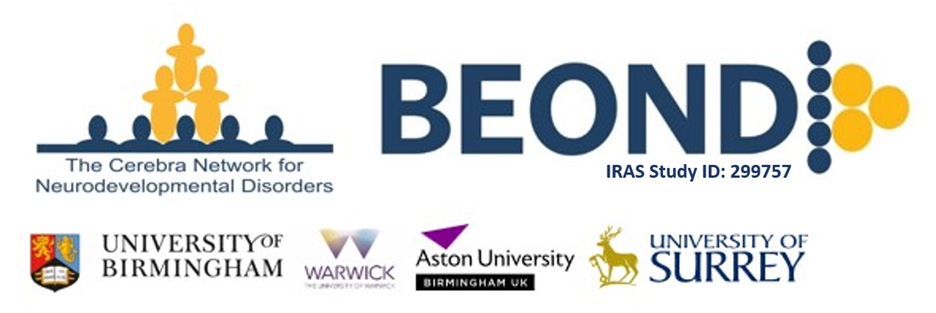The Cerebra Network for Neurodevelopmental Disorders is conducting a survey to learn more about behaviour, social functioning, sleep, hyperactivity, mood, physical and mental health, as well as family functioning and wellbeing, and how these change over time.

About the Study
Who can participate?
Parents and guardians/carers of a child (at least 1 year old) or an adult with full mutation Fragile X syndrome (FXS) may be eligible to participate.
What will happen in the study?
If the individual qualifies and decides to be in this research study, an invitation to complete the survey will be sent via email from a member of the Cerebra Network for Neurodevelopmental Disorders. The survey should take about 60 minutes to complete. The survey may be completed in more than one sitting.
What are the good things that can happen from this research?
We know that Fragile X syndrome, other genetic syndromes, neurodevelopmental disorders, and intellectual disabilities can affect people’s lives in lots of different ways. Our hope is that by collecting a range of data from lots of people with fragile X syndrome and other genetic syndromes at different points in their lives, we can develop a better understanding of common areas of difficulty, as well as challenges that might be specific to fragile X syndrome. Through this we may be able to offer better ideas for how to support people with Fragile X syndrome in the future.
Following participation in the survey, families will receive a feedback report to let them know about how their responses compare to other responses we have received and what the results might tell us about the person they care for.
What are the bad things that can happen from this research?
There is minimal risk anticipated for this study. The BEOND survey will touch on some quite sensitive topics, and families may be asked things that they do not often discuss with other people. For example, questions about behaviours that families might find challenging, or questions about distress experienced by caregivers. We invite any participants or family members to contact the research team if they find anything in the survey upsetting.
There may be other risks that we do not know about yet.
Will I or my child be paid to complete this study?
Participation in the BEOND study will be rewarded by entry into a prize draw. To qualify for entry into the prize draw, participants must have completed the survey in full. Prize draw entries will remain valid even if a family later chooses to withdraw from the study.
You can learn more about this study by visiting the study website: https://www.cerebranetwork.com/beond-fxs
Interested in Participating?
Our Most Recent Opportunities
FXS TECH Study
Researchers at Rush University Medical Center are working on technology to improve how to identify and track progress in children living with autism and Fragile X syndrome. The study is currently recruiting children ages 18 months to 5 years, and 12-18 years.
Study: Web Intervention for Parents of Youth with Genetic Syndromes (WINGS)
Researchers at the Autism Assessment, Research, Treatment & Services (AARTS) Center at Rush University Medical Center are currently conducting a fully-virtual research study that is testing two telehealth interventions that are designed to help parents of children with genetic syndromes and intellectual disabilities gain strategies to manage challenging behaviors.
Neural Underpinnings of the Relationship Between Cognition and Gait Dysfunction in Fragile X-Associated Tremor/Ataxia Syndrome (FXTAS)
Movement disorders researchers at Rush University Medical Center are conducting a research study to learn about brain activation in people living with FXTAS during tasks like walking and thinking. This study is currently recruiting adults ages 50+ who are living with FXTAS.
Pharmacogenomics and the Fragile X Community: Interest and Prior Understanding
Researchers at the University of Alabama are looking for members of the FX community to take their online survey so they can explore the knowledge & opinions of the FXS community on pharmacogenomic testing.
Brain & Behavior Study
Researchers at Purdue University are conducting a natural history research study to learn about brain activity in females, ages18-60 years, living with the FMR1 premutation.
NFXF Gene Therapy Community Survey
Help the NFXF - share your thoughts on gene therapy.

